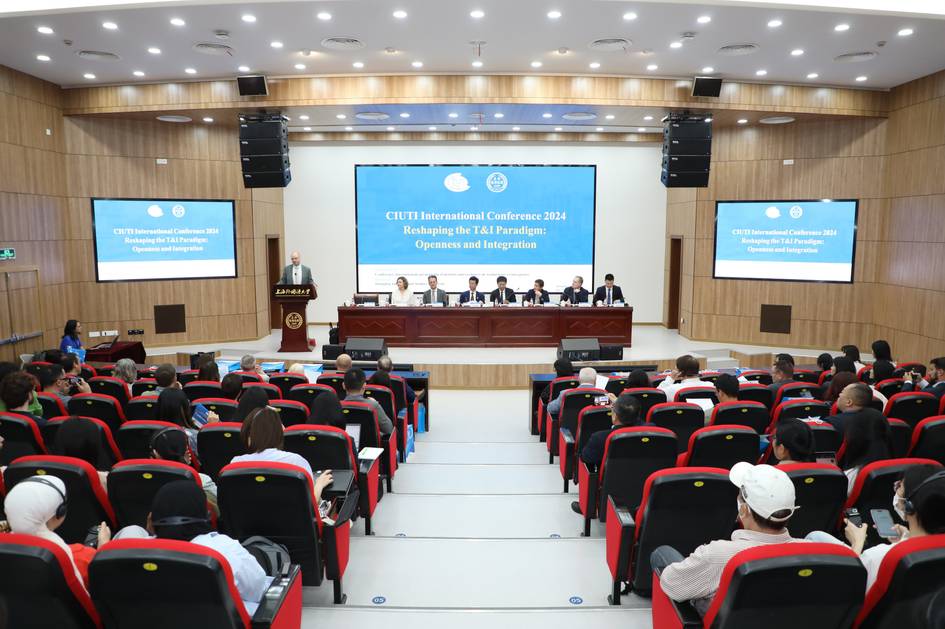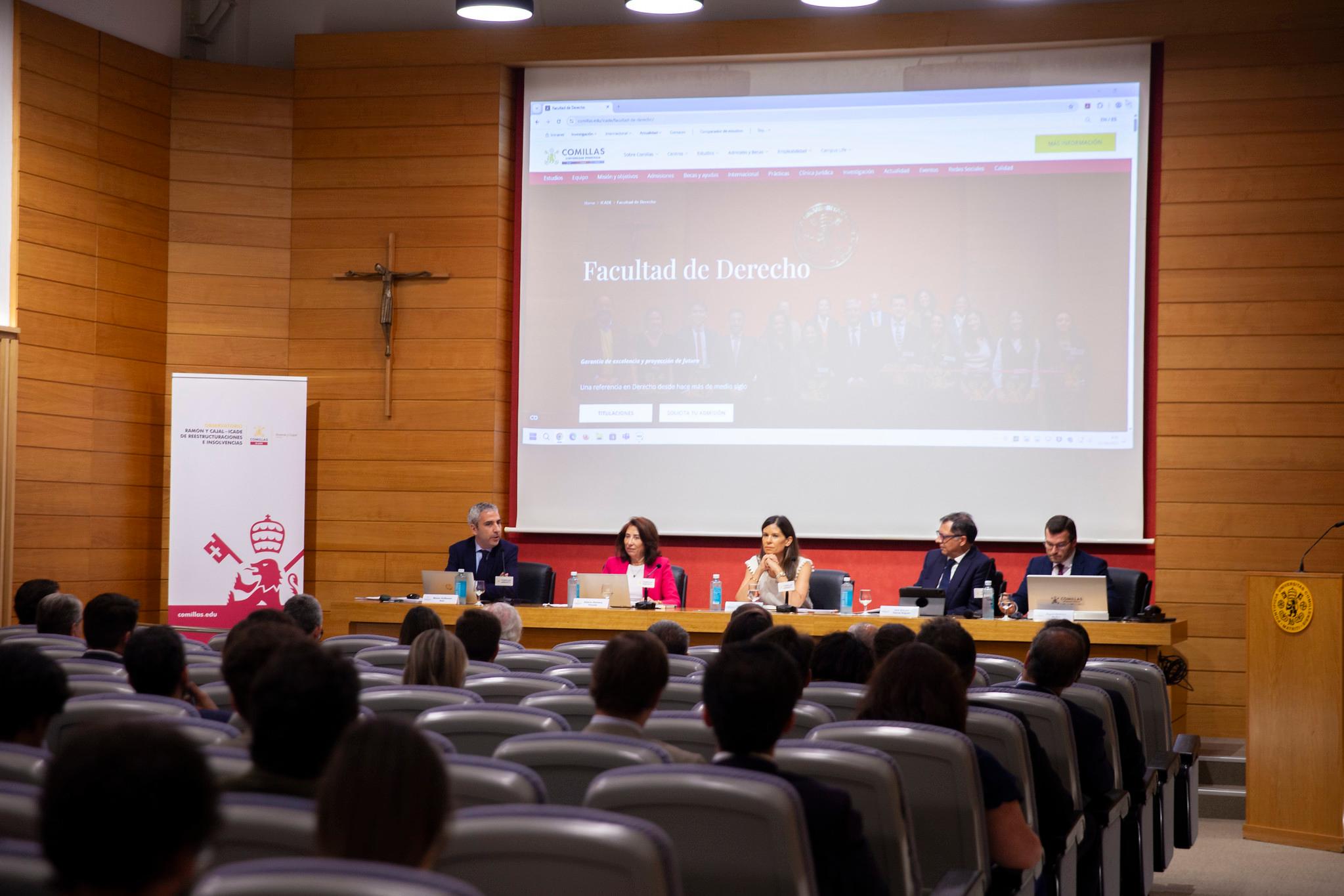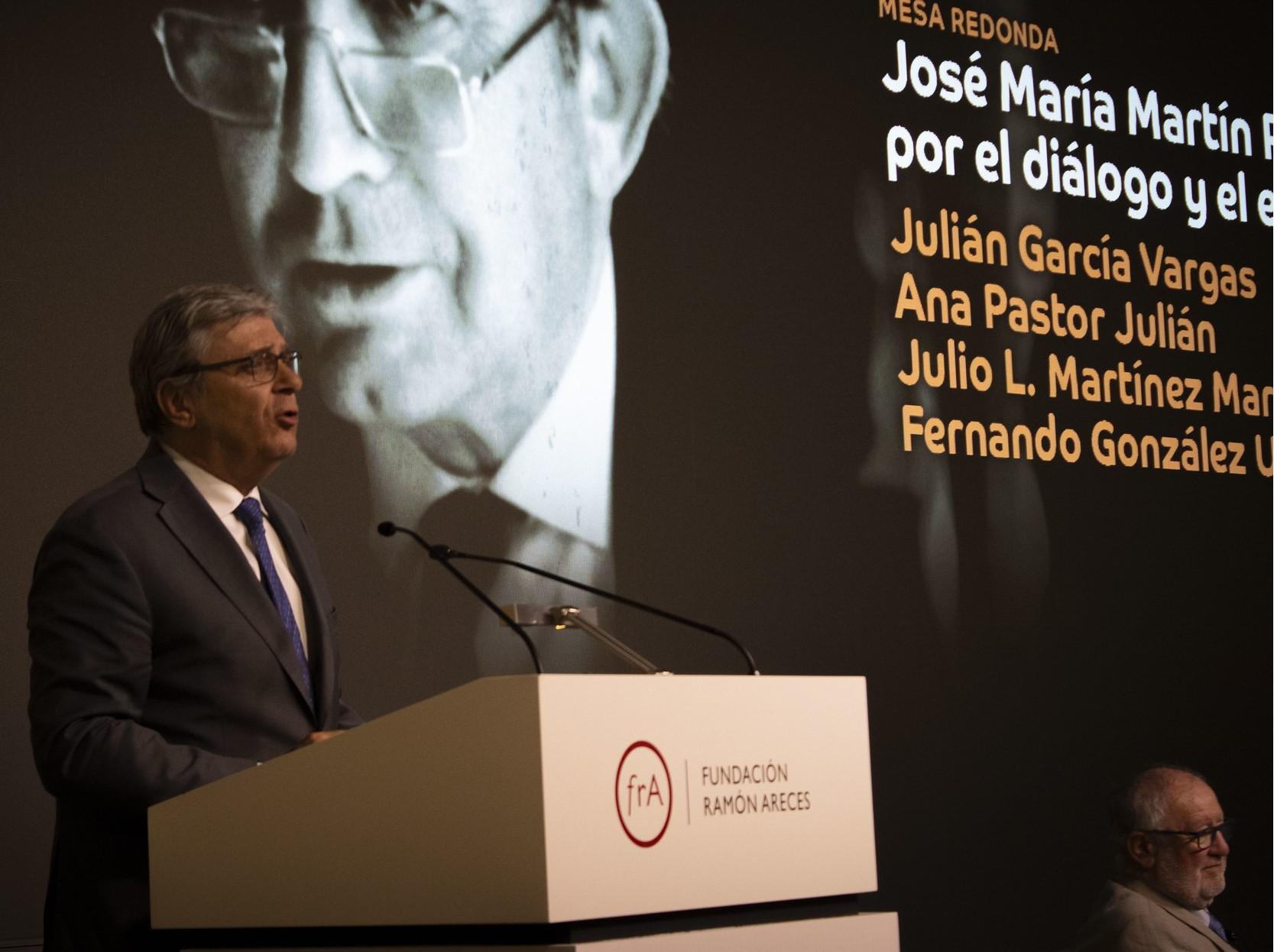Artificial intelligence as an ally in translation and interpreting
The Faculty of Humanities and Social Sciences (Comillas CIHS) participates in the Conférence Internationale Permanente D'Instituts Universitaires de Traducteurs et Interprètes (CIUTI)

19 June 2024
From 28 to 31 May, the Conférence Internationale Permanente D'Instituts Universitaires de Traducteurs et Interprètes (CIUTI) met in Shanghai, attended by the Dean of the Faculty of Humanities and Social Sciences (Comillas CIHS), Susanne M. Cadera, and the Director of the Department of Translation and Interpreting and Multilingual Communication, Andrea Schäpers. This organisation, of which Comillas is a member, is the oldest and most prestigious at an international level in the field of university translation and interpreting centres.
ingThe Shanghai International Studies University hosted the CIUTI General Assembly and Scientific Congress. At the opening, Ian Phillips of the UN stressed that artificial intelligence (AI) should enhance, not replace, human work in translation and interpreting, as humans pick up nuances that machines fail to do. Peter Dawkins agreed, stressing that AI is not yet fully accurate and human translators remain crucial in complex contexts. Li Zhengren added that translators must use AI to be more efficient, but legal quality and accountability depend on humans.
At the CIUTI General Assembly, Genoveva Ruiz-Calavera and Nataliya Myronenko highlighted the importance of translation and interpreting in international institutions. Communicators with cultural competencies, critical thinking, technical knowledge, use of AI, ethical considerations and continuous training, as well as values such as inclusiveness, integrity, humility and humanity are required.
The Comillas representatives were invited to present the proposal for the conference that Comillas will host in May 2025. The academic conference proposal entitled: "Translation in Transition: Assessing the Impact of Language Technologies Three Years after the Launch of Generative AI". This was very well received and the relevance of the subject matter was highlighted, which is in line with the current situation surrounding the application of these tools. The conference will address the pressing issues of the future of the sector: the evaluation of AI models in translation and interpreting, the new professional profiles for graduates in the subjects, the impact on teaching in both sectors, continuing education and professional retraining and the ethical dimensions of AI in translation and interpreting.
With the new degree in Translation and Interpreting and Language Technologies that Comillas is launching in the academic year 2024-25, the university accepts the challenge and proposes to train students for the current challenges in the profession with a focus on the added values demanded by employers.
You may be interested in

VIII edition of the Business Ethics Research Awards

Legal, economic and academic experts analyse the challenges and solutions in the field of corporate insolvency

Comillas Pontifical University and the Ramón Areces Foundation held a round table in tribute to José María Martín Patino, on the centenary of his birth, highlighting his role as a reference point for social and ecclesial dialogue
